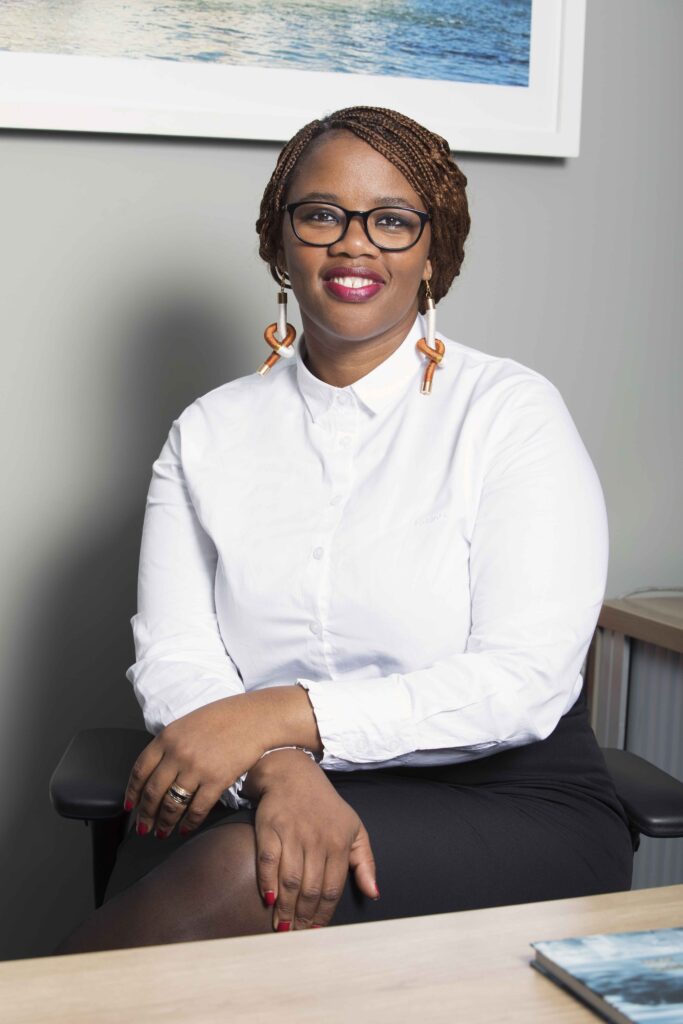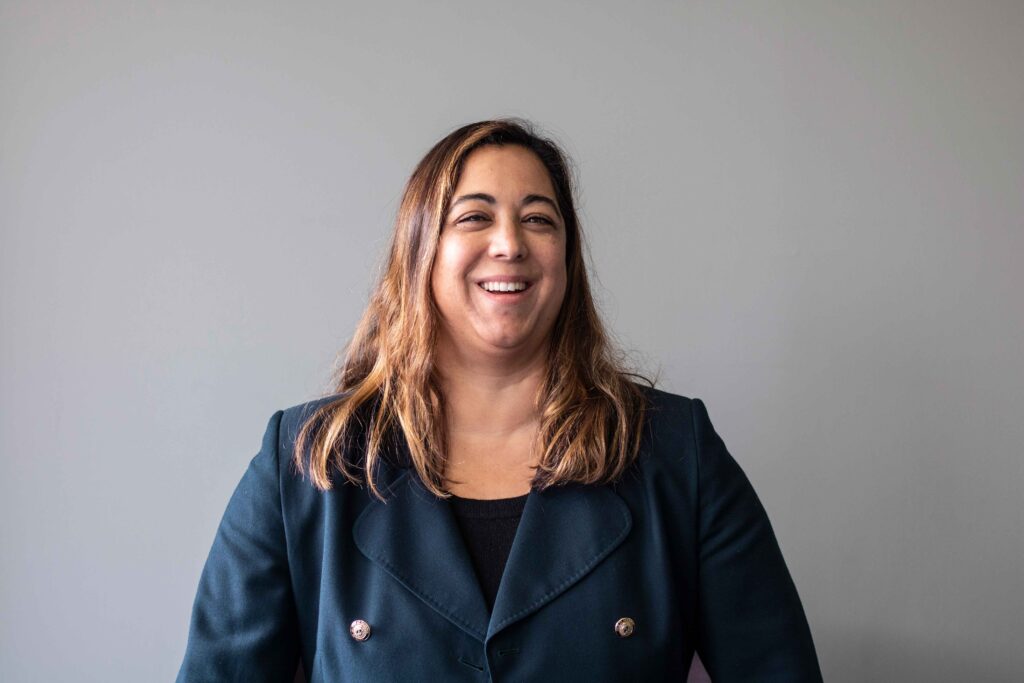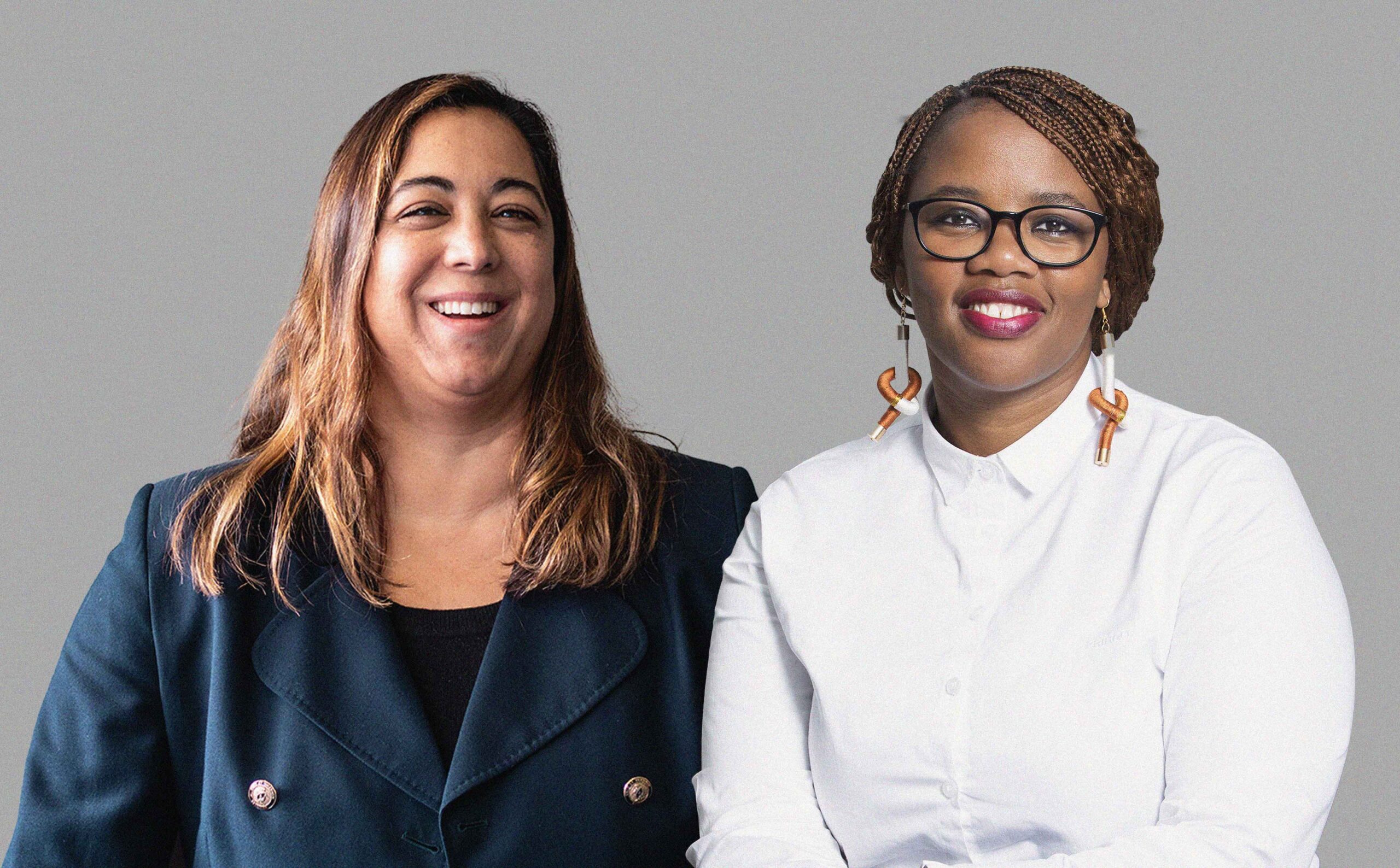In the fishing industry, women empowerment and sustainability goes hand in hand. Two phenomenal female executives of Africa’s largest fishing and commercial cold storage company, the Oceana Group, enlightens us.
Although women have globally always played an important part of the fishing industry, and still remain a large and integral part of the seafood supply chain, they have historically been underrepresented in decision-making roles.
However, we have it from good authority, that this picture is rapidly changing and in recent years women are increasingly occupying senior leadership roles in the fishing sector, as well stepping into specialised roles traditionally seen as the preserve of men. Together with the new breed of women in leadership positions comes a stronger focus on sustainability in the industry.
Jillian Marais (Group Executive for Compliance and Risk) and Zodwa Velleman (Group Executive for Corporate and Regulatory Affairs) at the Oceana Group (Africa’s largest fishing and commercial cold storage company), gives us the inside scoop regarding the position of women, sustainability in the fishing industry and the Oceana Group’s contribution to transformation in the fishing industry.
Zodwa Velleman (Group Executive for Corporate and Regulatory Affairs)

How have the roles of women in your industry changed?
According to a 2018 UN Food and Agriculture Organization report, women make up half the global workforce in fishing economies, from fish production, processing, to distribution. The fishing industry simply would not be what it is today without the contribution of women, many at the coalface of operations. Their roles, their efforts, and deep knowledge, insight and experience were not always recognised and this translated into limited opportunities and inequality in wages. But this is changing as our world evolves to recognise the important contribution of women at all levels in the fishing industry. At Oceana, women play a critical leadership role across all areas and regions of our business and are indisputably a very large part of what makes the Oceana Group a successful listed entity.
What is the Oceana Group doing to promote gender equity in the fishing industry?
Those who succeed in life have a duty and responsibility to help others to succeed–the Lift as you Rise philosophy – and that is what we believe at Oceana. As we shift the landscape in terms of gender equality, representation and participation, we are committed to nurturing, developing and bringing through the next generation of women leaders. We continually invest in our people and last year spent over R60 million on skills development, and we will continue to identify and invest in our people, particularly women. Our investment in skills development also finds expression in the Oceana Maritime Academy in Hout Bay, Cape Town. It is a state-of-the-art facility that offers world-class, accredited and industry relevant maritime skills and training, with a particular focus on empowering small-scale fishers, women and youth. The academy was started with an initial R40 million investment and Oceana will invest R35 million a year on fishing sector skills and training.
Can you tell us about the importance of diversity and inclusion at Oceana?
Today, successful businesses and organisations understand that diversity brings inclusion, which strengthens the fabric of that organisation, and in turn brings greater unity and sustainability, and ultimately success. There are many more female leaders than even just a decade ago, but as with any transformation it is a journey, and we cannot yet say that we have truly arrived. We have seen and reaped the rewards of having highly qualified and exceptional women in leadership roles across the organisation. We will always remember the contributions and sacrifices of women leaders in the struggle for equality and the journey to equality continues. We will continue to play our part in this struggle.
What are the biggest challenges for ambitious women in the fishing industry and what can be done to overcome them?
Opportunity is probably the biggest challenge, as it is in most sectors. The fishing industry presents arguably a greater challenge due to the limited and slow turnover in staff as it is very sector specific and therefore people tend to remain with companies for lengthy periods of time. Businesses must be intentional about recognising talent and ambition, and couple this with relevant skills and experiential training, and they must open up the doors of opportunity for women and other under-represented groupings to step through. We talk about the fishing industry, but if we look at a more macro picture of the maritime industry and the opportunities as envisaged within the oceans economy, then there are myriad opportunities present there. Here, we are talking about aquaculture, eco-tourism, renewable energy, and marine biotechnology which offer tremendous opportunities for sustainable expansion. Again, training and skills development, which Oceana is committed to, will play an important role in furthering the role of women in this critical economy as put forward in the South Africa’s National Development Plan (NDP).
Are there any specific projects you would like to highlight?
For South African Women’s Month 2020, we held a virtual celebration and we launched a special commemorative book to celebrate the women leaders in Oceana. The book recounts the stories, histories, struggles and achievements of 24 female executives and business leaders. The book formed part of meaningful efforts to “recognise, honour and celebrate” the women leaders of Oceana and to hold them up as examples to other women in the organisation, in the broader fishing industry, as well as to the girl child looking for role models. As Oceana Group CEO Imraan Soomra said: “It is imperative that all organisations have women in leadership positions, sitting around boardroom tables, and making critical and defining business decisions.”.
Jillian Marais (Group Executive for Compliance and Risk)

Does any specific woman who excelled come to mind?
Our very own Thembela Taboshe became the third black South African woman seafarer to obtain the Master Mariner qualification, which means she is licenced to command a vessel of any size, anywhere in the world. Today, she has stepped from the decks to the boardroom and is the Safety, Health and Environmental Executive at Blue Continent Products, a subsidiary of the Oceana Group.
Can you please tell us more about your company’s views on supporting and promoting sustainabile fishing?
Sustainability is a central tenet of our strategic approach in terms of our core business of catching and processing fish, as well as ensuring food security in the form of nutritious meals daily for millions of people. Oceana’s commitment also stretches to providing much-needed sustainable employment to thousands of people, many of whom live in deeply economically deprived areas. Our key commitments are clearly stated and lived up to each day to ensure the sustainable and ethical use of our marine resources to preserve our oceans for this, as well as future generations, and to translate this into meaningful and broad-based socio-economic benefits.
What is Oceana’s single biggest contribution to sustainability in the space in which it operates?
Oceana’s commitment to environmental, social and governance (ESG) issues underpins all we do, and our approach is integrated to ensure our impact is as holistic as possible. Our key commitments are to the sustainable and ethical use of our marine resources to preserve our oceans for future generations; the preservation of jobs and the promotion of sustainable employment; contributing to food security; and inclusive growth and shared prosperity. We believe that any company that is afforded the right to fish must prove their tangible commitment to converting these rights into broad-based social and economic benefits while ensuring that this is always done in a sustainable and inclusive manner. Our global procurement strategy means we have been able to secure and continue operations through importing pilchards from other fisheries across the world, thus allowing local stocks to recover to sustainable levels while procuring products from areas where fish populations are not at risk.
Sustainability forms a large part of your company’s group strategy and social purpose. Can you please tell us more about this?
Oceana is a founding member of the Responsible Fisheries Alliance (RFA), a partnership with WWF-South Africa, BirdLife South Africa, and others in the fishing industry to advance an ecosystems-based approach to fisheries management and to promote responsible fishing practices and a deep understanding of the significance of the marine ecosystems in sustainability and long-term societal value creation. Oceana is also a member of FishSA, the industry body that holds members accountable for sustainable, responsible, and ethical fishing practices to protect the integrity of the marine ecosystem. This value system extends to our commitment to our people and their livelihoods, as well vulnerable sectors of our society, including traditional fishing communities, which lie close to our heart. As a Group, we recognise the numerous opportunities the oceans economy offers beyond traditional industries such as fishing and maritime transport, to include increased tourism and eco-tourism activities, renewable energy, and marine biotechnology. We believe a diversified and sustainable oceans economy has the potential to meet the economic and social needs of vulnerable coastal communities, especially the small-scale fishing (SSF) sector. We are committed to helping grow this economy to the benefit of all, through the sustainable development and the responsible harvesting and preservation of marine resources. We also launched the Oceana Empowerment Trust (OET) in 2006 to unlock and convert the value of harvesting fishing rights into shared, broad-based value for our eligible black South African employees. The Trust vested this year and almost R1 billion in value were accrued for over 2 400 OET beneficiaries, allowing them to become financially empowered. This speaks to our stated commitment to positively impact lives.
The Oceana Group provides additional focussed support through various CSI initiatives. Why is this such an important part of your strategy?
We live in a region where food security is perilous for millions every day and this has been exacerbated by the Covid-19 pandemic. As a major food producer, we have a moral duty to support the very real fight against hunger and malnutrition. At Oceana, we base our actions on the philosophy that those of us who live above the breadline have a responsibility to those who live below it. Therefore, we work in close partnership with relief and community organisations such as Rise Against Hunger, the Peninsula School Feeding Association, Gift of the Givers, FoodForward SA, and other organisations such as FishSA to counter the growing threat of hunger in communities all over South Africa.
What is Oceana doing to promote responsible stewardship of the marine environment and how are you mitigating your onshore impacts?
Oceana is fully committed to protecting the integrity of the marine ecosystems and resources in all the regions in which we operate. As one of the founding members of the RFA, Oceana is committed to sustainability in terms of ensuring fish species are sourced from sustainable fisheries, that staff adhere to responsible fishing practices, that all efforts are made to minimise the impact on endangered, threatened, protected and vulnerable species, and that accurate fisheries data and records are kept for all fishing operations. We condemn any and all illegal and harmful fishing practices and are committed to working to ensure our oceans are protected and fished sustainably for this, as well as future generations.
In 2020 you focussed on delivering value in terms of three societal goals linked to food security and marine resources: Can you please tell us about this achievement?
Oceana aims to help address hunger through the provision of nutritious and an affordable supply of food in line with Goal 2 of the UN’s Sustainable Development Goals, which commits us to ending hunger, achieving food security, improved nutrition, and promote sustainable agriculture by 2030. We continue to enhance our operational efficiencies and innovate so that we can increase our cost-effective contribution to food security through the provision of low-cost protein. Oceana is committed to fishing responsibly and sustainably and what we catch and how we catch is as important to us as providing food security. Lastly, we are very cognisant of the impact on the climate and how such pressures directly impact our operations, and we collaborate broadly to mitigate our own impact on the environment.


